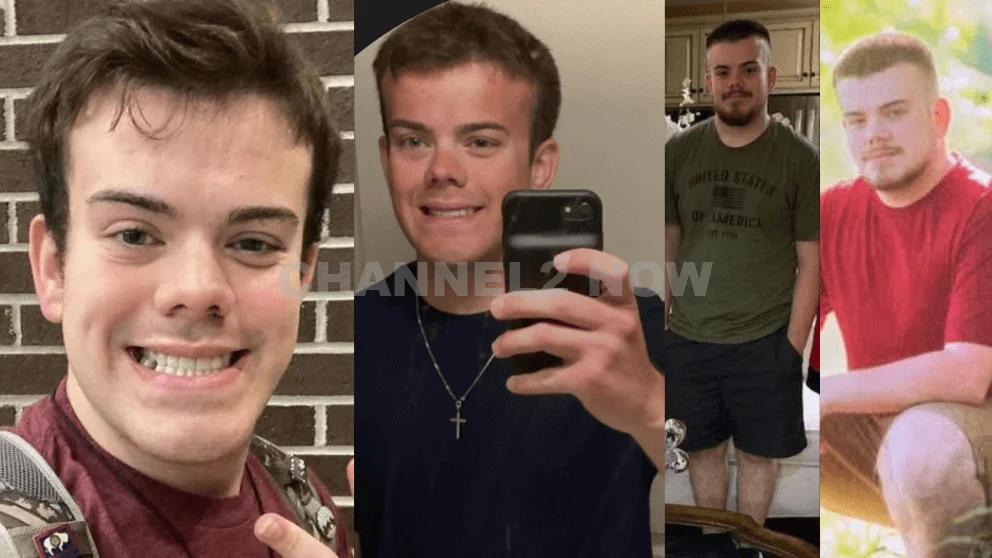
In the quiet hours of a Tallahassee morning, the Florida State University campus was shattered by gunfire, leaving two men dead and five others wounded. The tragedy, unfolding near the bustling Student Union, has gripped the community with grief and disbelief. At the center of this devastating event is 20-year-old Phoenix Ikner, a political science major and the stepson of a veteran sheriff’s deputy, whose troubled past has now come into sharp focus through newly surfaced court records. These documents paint a portrait of a young man caught in a turbulent family history, marked by a contentious custody battle that spanned continents and left deep scars.
Ikner, born Christian Gunnar Eriksen, legally changed his name in 2020, a decision that marked a new chapter in a life already fraught with complexity. Raised primarily by his father, Christopher Ikner, and stepmother, Jessica Ikner—a respected Leon County Sheriff’s deputy with 18 years of service—Ikner’s early years were shaped by a bitter dispute between his father and biological mother, Anne-Mari Eriksen. Court records reveal that in 2015, when Ikner was just 10 years old, Eriksen took him to Norway, violating a custody agreement with his father. She had claimed the trip was a brief visit to South Florida, but instead, she fled the country with her son, a dual U.S.-Norwegian citizen. This act led to her arrest upon their return to the United States at Fort Lauderdale-Hollywood International Airport in July 2015.
The affidavit from that case details a troubling period for the young Ikner, who was diagnosed with developmental delays, ADHD, and a growth hormone disorder requiring consistent medical care. His father expressed concern that Eriksen neglected these needs, failing to enroll Ikner in school for required evaluations, missing critical medical appointments, and not administering prescribed medications during their time abroad. Eriksen faced kidnapping charges and ultimately pleaded no contest, receiving a sentence of 200 days in jail (with credit for 170 days served), two years of community control, and two years of probation. She was also ordered to have no contact with her son, his school, or his medical providers unless permitted by the court.
The fallout from this episode extended beyond criminal proceedings. In October 2015, Eriksen filed a civil lawsuit against Christopher Ikner, Jessica Ikner, and two other relatives, alleging slander, libel, and emotional abuse toward her son during protracted family court battles. The lawsuit, which named the then-11-year-old Ikner as a defendant, claimed Jessica Ikner had written “unwanted” letters placed in his backpack and accused her of striking him. Eriksen sought $80,000 in damages, intending to deposit the funds into a college account for her son. The case, however, was dismissed by the judge seven months later without prompting from either party, leaving the allegations unresolved.
Ikner’s ties to law enforcement added another layer of complexity to his story. As a longstanding member of the Leon County Sheriff’s Office Youth Advisory Council, he was immersed in the sheriff’s office culture, participating in training programs and community outreach. Sheriff Walter McNeil described him as “steeped in the sheriff’s office family,” noting that his access to firearms—specifically a handgun once used as Jessica Ikner’s service weapon—was unsurprising given his background. During the shooting, Ikner was also found with a shotgun, though it remains unclear if it was used in the attack.
The motives behind the April 17, 2025, shooting remain elusive. Ikner, hospitalized with non-life-threatening injuries after being shot by responding officers, has invoked his right to remain silent, leaving investigators to piece together his actions and mindset. The two victims, neither of whom were FSU students, have not been publicly identified, and the six injured survivors are receiving treatment at Tallahassee Memorial Healthcare. The university, reeling from the violence, has canceled classes and events through Friday, urging students to remain indoors as the investigation continues. The FBI is assisting local authorities, collecting photos, videos, and tips from the public to aid in the inquiry.
For the FSU community, the shock is profound. Students like Victor Castillo, who ducked under a stool as gunshots echoed through the Student Union, describe a campus transformed by fear and confusion. The tragedy has also reverberated through the sheriff’s office, where Jessica Ikner’s exemplary service now stands in stark contrast to her stepson’s actions. Sheriff McNeil has vowed a thorough prosecution, emphasizing that such violence will not be tolerated. Meanwhile, Anne-Mari Eriksen, estranged from her son for nearly a decade, posted on social media hours before Ikner’s identity was confirmed, expressing anguish over her inability to confirm his safety. Her words, later deleted, underscored the fractured family ties that have resurfaced in the wake of this tragedy.
As Tallahassee mourns, the story of Phoenix Ikner serves as a sobering reminder of the complex interplay between personal history and public tragedy. The investigation presses on, seeking answers to questions that may never fully resolve the pain left behind.